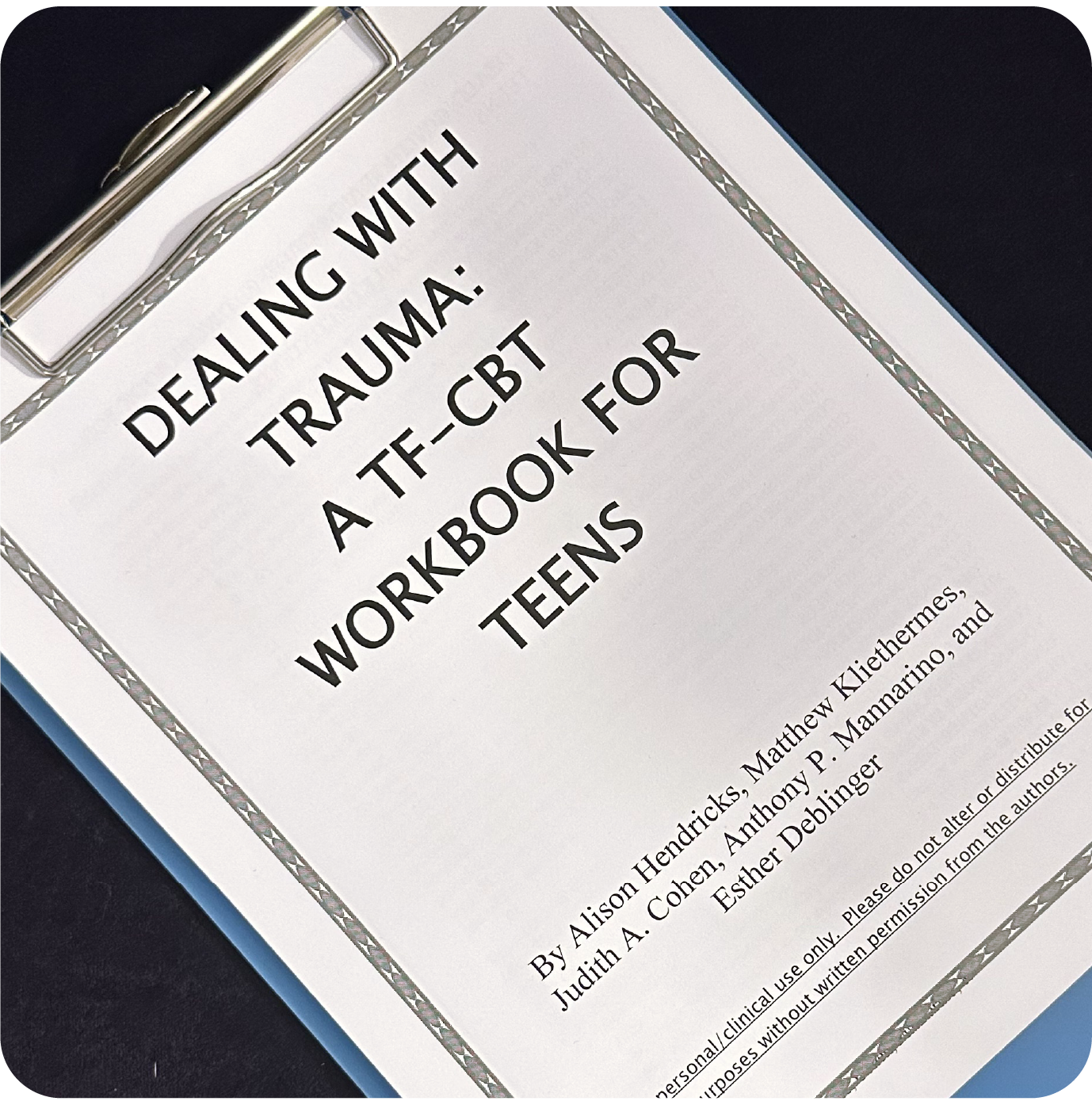Psychotherapy
Diagnostics
METHODS USED IN OUR CLINIC
Traditional Cognitive Behavioral Therapy (CBT)


Trial-Based Cognitive Therapy (TBCT)
Trauma-Focused Cognitive Behavioral Therapy (TF-CBT)
- Stabilization
- Trauma Narration and Processing and
- Integration and Consolidation
TF-CBT was ideally designed for ages 18 and younger. However, our providers have adapted the model and supplemented other CBT methods that have yielded significant benefits and are an effective treatment alternative to EMDR therapy.


Schema Therapy
Schema therapy is largely based in CBT, but also utilizes other influences like attachment theory and Emotion-Focused Therapy. Schema therapy evaluates core beliefs that are formed throughout childhood as a result of unmet needs. These unmet needs can develop into significant emotional and mental distress in adulthood if left untreated. For this reason, schema therapy is extremely effective in treating complicated mental health issues that typically do not respond easily to treatment, such as personality disorders.
METHODS USED IN OUR CLINIC

Traditional Cognitive Behavioral Therapy (CBT)

Trial-Based Cognitive Therapy (TBCT)

Trauma-Focused Cognitive Behavioral Therapy (TF-CBT)
- Stabilization
- Trauma Narration and Processing and
- Integration and Consolidation
TF-CBT was ideally designed for ages 18 and younger. However, our providers have adapted the model and supplemented other CBT methods that have yielded significant benefits and are an effective treatment alternative to EMDR therapy.

Schema Therapy
Schema therapy is largely based in CBT, but also utilizes other influences like attachment theory and Emotion-Focused Therapy. Schema therapy evaluates core beliefs that are formed throughout childhood as a result of unmet needs. These unmet needs can develop into significant emotional and mental distress in adulthood if left untreated. For this reason, schema therapy is extremely effective in treating complicated mental health issues that typically do not respond easily to treatment, such as personality disorders.
Get The Help You Need
We have offices in Fayetteville and Bentonville with the option of virtual therapy.
What to expect
We have several clinical staff members that have dedicated their careers to studying and applying these treatment options to have an effective, long-lasting result in the therapeutic process. Our clinic does not deviate much from the above-listed methods, and your consent and collaboration will be utilized throughout the process to determine what fits your needs. In addition to the models we use in therapy, we align ourselves with a clinical approach to therapy. In short, a clinical approach means we evaluate and focus on more than just how the last week has been for you.
We focus on determining if you could benefit from medication and being ethical and appropriate about those recommendations. Our staff work closely with medication providers that support our therapy methods and are knowledgeable about psychiatric medications.If you are a good fit for a medication assessment, our staff will initiate your referral during treatment. Another resource we use in our clinical approach is psychiatric diagnostic testing.
Mental health diagnoses are sometimes extremely difficult to determine, causing delays in the best treatment and frustrations with the process. We collectively believe that the authority in psychiatric diagnostics is a Clinical Psychologist due to their scope of practice and overall role in providing an accurate diagnosis.
If your therapist determines diagnostic testing could be meaningful for your treatment, you will be referred to our staff psychologist for this service. Our certified staff is ready to put together a plan for you by selecting the best therapist for your specific needs and determining the frequency of your visits. This means that the therapist you see the first time will not necessarily be the one you continue with since we are trying to find the best match, which is impossible to predict by selecting a therapist’s online profile. Your questions will be well answered in your intake appointment, which mostly gathers your history, determines goals, and outlines the most effective psychotherapy treatment that can be delivered to you.
